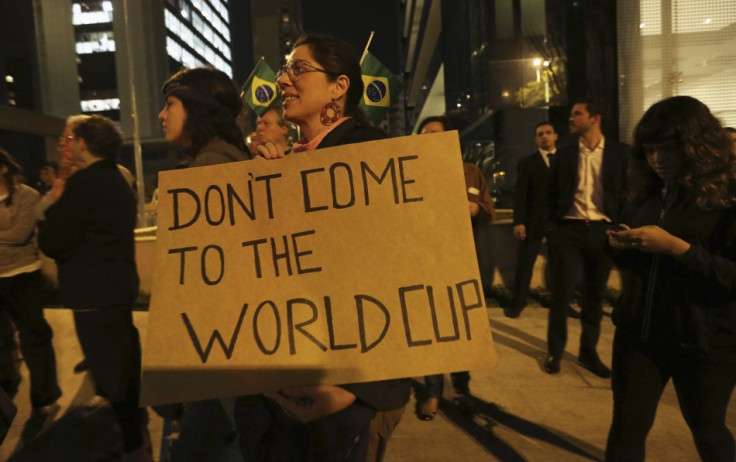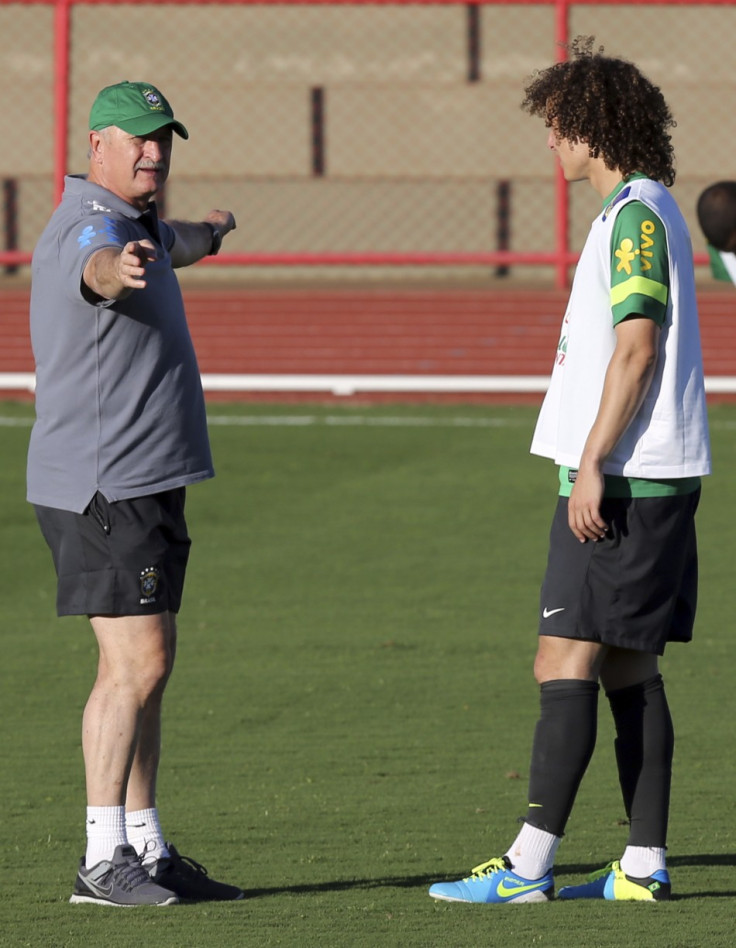Brazil Protests: Hulk, David Luiz and Other Football Heroes Back World Cup Demos [VIDEO]

Brazilian football stars have thrown their weight behind protests that have engulfed the country.
Hundreds of thousands of people have taken to the streets in Brazil's major cities to demonstrate against rising prices and corruption. Some protesters also called for a boycott of next year's World Cup, on which the government has spent billions while neglecting social and public services.
"I'm in favour of demonstrations without violence," said Chelsea defender David Luiz, who is in his home country to play in the Fifa Confederations Cup.
"People are entitled to express their opinions and to protest if they are not happy. The demonstrators are fighting for health and education. Brazil has everything to grow and be better."
Luiz's advocation of non-violence protest has been echoed by coach Luis Felipe Scolari and team-mate Dani Alves, who used Twitter to reach out to the protesters.
"Order and Progress," Alves tweeted, quoting the worlds emblazoned on the national flag. "Without violence for a better, peaceful, educated, honest and happy Brazil."
Brazil's national team is in the coastal town of Fortaleza to play Mexico as part of a tournament that is largely seen as the World Cup's dry run.
The squad found a crowd of protesters gathered outside their hotel when they arrived in the city earlier this week.
"I grew up poor and even if, thank God, I am better off today I can understand these protests - they make sense," said striker Hulk. "When I came downstairs [at the hotel], I felt a bit like [joining]."
Roots of the riots
In November the government said the cost of renovating stadiums, airports and other infrastructures needed for the World Cup has risen to more than $13bn (£8.3bn).
About $500m has been spent on renovating Rio's famous Maracana stadium, which underwent restyling works as recently as 2007.
Protests erupted last week after a hike in public transportation fares was announced in Sao Paulo and Rio de Janeiro, and has since mushroomed across the country. Local governments in at least four cities have since agreed to reverse those hikes.
Demonstrations have been largely peaceful but riot police scuffled with some violent groups and looters who took advantage of the situation.
The government, led by President Dilma Rousseff, a former leftist guerrilla who was imprisoned and tortured during Brazil's 1964-85 dictatorship, said national security forces are to be deployed in five major cities. The move came after some 50,000 protesters returned to the streets in Sao Paulo, with a TV satellite truck and police lookout booth both set alight.
"The World Cup will mess up Brazil," Brenda Nevis, an 18-year-old waitress in Sao Paulo, told The Times. "The country is not prepared for it, and we need the Government to sort out education and healthcare first. The Government takes all the money. We see them with all the corruption all the time. And we the public don't get anything. We just got tired."

© Copyright IBTimes 2025. All rights reserved.





















